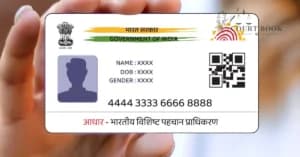In a significant move echoing constitutional values over social hierarchy, the Madras High Court on Friday directed authorities in Kancheepuram to ensure that the annual temple car festival of Muthu Kolakki Amman Temple includes a route through the Dalit Colony in Puthagaram village. The order came after villagers from the Scheduled Caste community complained of being historically excluded both from the temple and the chariot procession.
Background
The case was brought by Selvaraj, a resident of Puthagaram, who argued that despite the temple being under government control, caste-based barriers continued to exist on the ground. He described years of resistance from upper-caste groups, including objections to Dalit devotees participating in rituals and preventing the temple car from entering their streets during the festival.
The petitioner said previous complaints and peace committee meetings yielded little. The issue escalated during the festival earlier this year, when Dalit residents were allegedly denied participation, leading to this writ petition seeking court intervention.
Read also: Supreme Court Restores Dowry Harassment Case, Says High Courts Cannot Conduct 'Mini-Trial' While
Court’s Observations
Justice P.B. Balaji, who heard the matter, made firm remarks on equality and religious freedom. The bench observed, “Faith cannot be fenced by caste or creed, and divinity cannot be confined by human prejudice.” He added that God “does not reside in certain streets alone,” and therefore traditions cannot be used to perpetuate exclusion.
The court noted that the District Collector’s field inspection confirmed that the temple chariot could feasibly travel through the extended route reaching the Dalit Colony, with only minor road repairs required. The Collector had submitted an integrated route map, technically and structurally viable.
Opposing counsel representing upper-caste residents argued that altering the route could trigger multiple future demands. But the court dismissed this, calling it speculative and unsupported. The judge observed that society evolves, and “resisting change in the name of tradition cannot be a valid defense.”
Read also: Supreme Court Orders Fresh Auction for Mahanadi Sand Quarry, Says Tender Process Misread 'Previous
On temple access, the court underlined Article 17 of the Constitution, which abolished untouchability “not just in physical form but in spirit.” It recorded the government’s assurance that no one is prohibited from entering the temple to worship.
Decision
The High Court allowed the petition and issued these directions:
- No discrimination: Authorities must ensure that Scheduled Caste residents face no obstruction in entering and worshipping at the temple.
- Revised Car Festival Route: The chariot must follow the extended integrated route proposed by the District Collector, including passage through the Dalit Colony, during both the trial and main runs.
- Police Protection: The local police must ensure peaceful conduct of the procession.
The decision reaffirmed equal religious rights for all, marking a significant pushback against attempts to justify caste barriers under the guise of custom and tradition.
Case Title: Selvaraj vs The District Collector, Kancheepuram & Others
Court: Madras High Court
Bench: Justice P.B. Balaji
Case Type: Writ Petition (W.P. No. 33759 of 2025)
Date of Judgment: 07 November 2025










